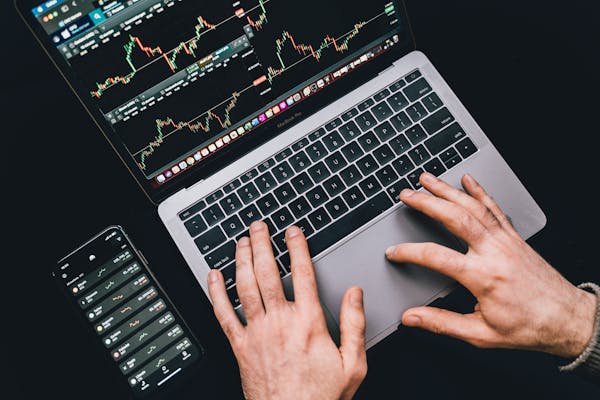Cryptocurrency exchanges are trading platforms that facilitate the buying and selling of cryptocurrencies. They typically offer a range of features like order matching, trading charts, and wallet integration.
The best cryptocurrency exchanges will have low fees and high levels of security. It’s also important to check how easy it is to contact customer support. Discover more at Cryptsy.
What is a Cryptocurrency Exchange?
A cryptocurrency exchange functions as a digital marketplace that matches crypto buyers and sellers. Users can deposit local currency into their crypto exchange account or wallet and then swap it for the cryptocurrency they want. They can monitor their account or crypto wallet to verify that the transaction took place.

Cryptocurrency exchanges have become popular because they are an easy and convenient way to buy and sell cryptocurrencies. However, they are also very vulnerable to hacking and theft. Some of the largest exchanges have been hacked in recent years, leading to millions of dollars worth of losses.
It is important to carefully research and choose a reliable cryptocurrency exchange. Investors should consider factors such as fees, cryptocurrency selection, trading options and customer service. They should also be wary of centralized exchanges that do not give their users control of their private keys. Decentralized exchanges are safer because they do not rely on a single authority to operate.
Types of Crypto Exchanges
Cryptocurrency exchanges offer a host of services, but they all have one essential function: enabling users to buy, sell, and trade cryptocurrencies in a seamless and secure way. There are several different types of cryptocurrency exchanges, ranging from traditional centralised exchanges to decentralized exchanges.
Most people are familiar with stock and commodity exchanges, which enable investors to buy or sell stocks and commodities on a global market. But with cryptocurrencies booming into a $1.50 trillion industry, and driving a new wave of global disruption with blockchain technologies, it’s important to understand the role of crypto exchanges and how they work.
Cryptocurrency exchanges work on a digital marketplace similar to online brokerage platforms, allowing investors to buy and sell cryptocurrencies and tokens in a simple and efficient way. They also provide a range of tools and features, from order matching to account management. They often charge transaction fees and have different levels of security. Choosing the right crypto exchange depends on your price range, risk tolerance, and technical expertise.
Regulations
In the wake of high profile hacks, regulators have been increasingly proactive in addressing cyber risks in cryptocurrency exchanges. In 2021, Canada’s PCMLTFA added requirements that crypto issuers disclose how they protect their assets against theft.
In addition to security, it is important to consider how an exchange handles your deposited funds. If an exchange is a money transmitter, you should be sure it is registered with the Financial Crimes Enforcement Network (FINCEN).
It’s also worth comparing the fees and services offered by various exchanges. For example, some offer margin trading, futures and derivatives, staking, lending, and more. You should also pay attention to an exchange’s KYC and AML procedures, transparency, and other regulatory compliance measures. A good way to evaluate these factors is to visit a site like FINRA BrokerCheck, which allows users to check whether a brokerage firm has been registered with the Securities and Exchange Commission (SEC). This helps consumers protect their interests and avoid scams.
Security
Security measures include using strong encryption techniques, two-factor authentication, and cold storage for funds. This helps reduce hacking attempts and increases the trust of users on your platform.
Many cryptocurrency exchanges require users to verify their identity before allowing them to use the platform. This usually involves uploading a government-issued photo ID and confirming personal information with the company. It is also important to keep your exchange software and wallets up to date. Software updates often contain security patches that can fix vulnerabilities and prevent attacks from hackers.
Cryptocurrency exchanges are vulnerable to Distributed Denial of Service (DDoS) attacks, which can cause them to crash or become unusable. To protect against this, you should make sure that your crypto exchange has anti-DDoS protection.